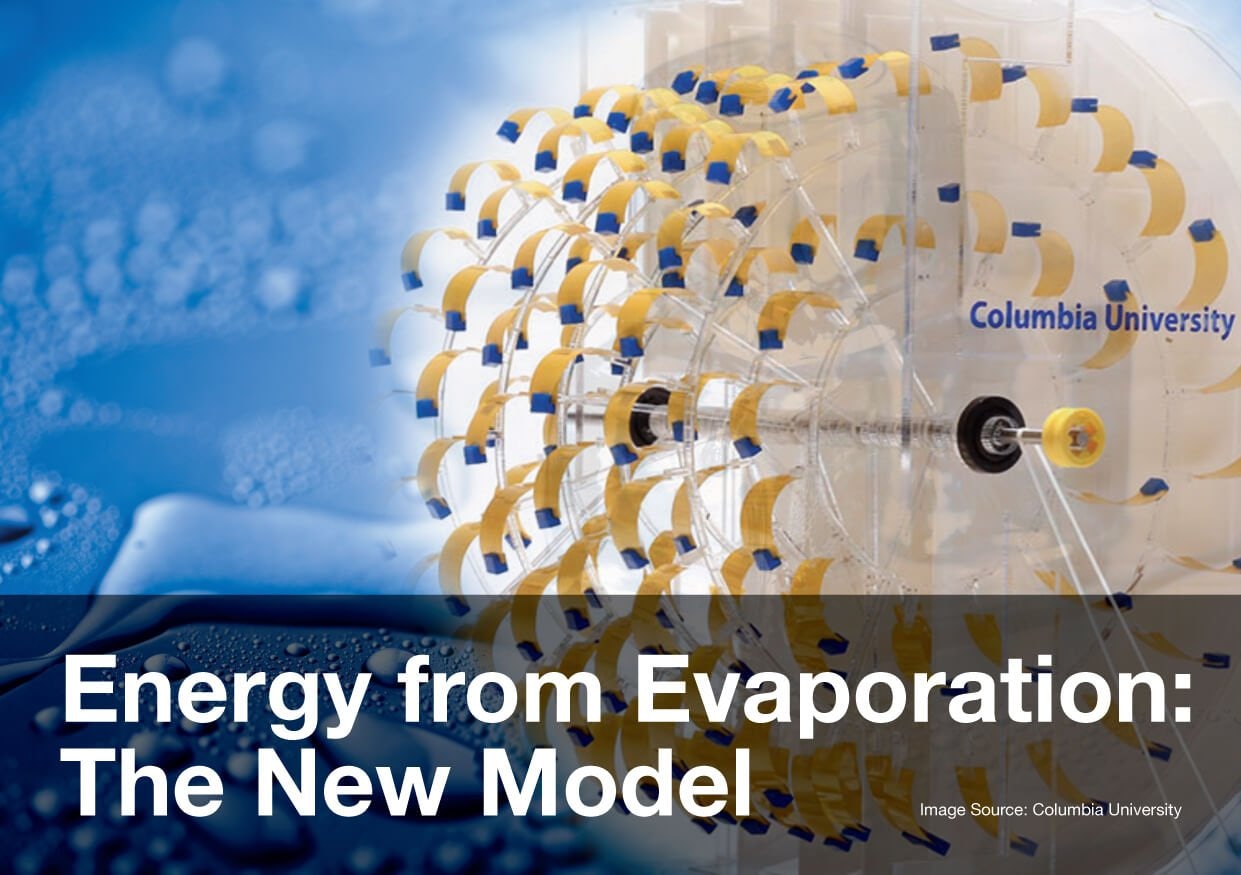Energy from Evaporation: The New Model
When it comes to renewable energy, there is a limited number of options currently available with a viable production process behind them.
Even the most researched, popular methods with huge investments, such as wind and solar power, have significant problems with energy-on-demand, and require supporting technology in terms of storing the produced power for later use.
Evaporation isn’t a new option for harvesting green energy, but until now its potential was unknown as its producing power had not been quantified. Researchers from the Columbia University are now able to unlock the most efficient way to turn evaporation into energy and make it possible around the clock. Using an “Evaporation Engine” the production laboratory’s humidity is controlled which makes bacterial spores expand and contract; the movement of these contractions is then transformed into energy through a generator.
When the project began it was unclear whether this process would be very limited and restricted to small amounts of energy, but the team lead by Ozgur Sahin, a biophysicist at Columbia, has now finished their calculations and according to them, U.S. reservoirs and lakes could produce 325 gigawatts of power; nearly 70% of the country’s current generation.
Some of the additional advantages include the fact that it can be produced when required, eliminating wasted energy and the costs behind it. Compared to wind and solar power, when the natural resources are absent, evaporation doesn’t require batteries (which are not only expensive but need toxic materials to manufacture).
This technology also has another very green element to it: according to the same calculations by the researchers, approximately half of the evaporation loss could be saved using the new energy-harvesting process. As demand goes up and new resources may be scarce, this technique could make a big impact in water-strapped, fast-growing areas where it could do more with less.
As a supporter of green energy, Dashboard is excited about the evaporation engine possibilities. We think once further developed, it could be another step towards a more planet-friendly energy production model.
